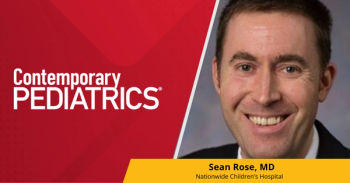
Diane Straub, MD, addresses STI screening and confidential care in adolescents
Adolescent STIs are rising. Diane Straub, MD, MPH, stressed confidential care, routine screening, and balancing parental involvement at AAP 2025.
Diane Straub, MD, professor of pediatrics and section head for Adolescent Medicine at the University of Colorado and Children’s Hospital Colorado, discussed current challenges and priorities in adolescent sexual health at the American Academy of Pediatrics (AAP) 2025 National Conference and Exhibition.
“There has been an increase in all STIs recently in adolescents, except for HIV, which has been relatively stable,” Straub said. “The most common reportable STI is chlamydia. However, there are other STIs, HPV, [and] herpes that also have pretty high burden, that are not reportable illnesses, but are thought to also have pretty high incidence.”
Screening and guideline updates
According to Straub, current Centers for Disease Control and Prevention (CDC) recommendations for screening have remained consistent. “It’s still recommended to do routine screening in sexually active adolescent females and higher-risk adolescent males,” she said.
Straub emphasized the importance of patient-centered care. “It’s just really important to make sure that you’re doing a confidential history and finding out what sexual and reproductive needs that your patients have, and that can be a difficult thing in a busy practice, so it’s just something to really make sure to prioritize and ensure that it happens.”
Barriers to adolescent sexual health care
Straub noted that access to confidential care remains uneven across the country. “In a lot of places, there are many barriers, and those include a lack of access to comprehensive sexuality education. A lot of young people don’t really have—don’t think this is a salient topic, and don’t recognize their personal risk,” she said.
She added that legal and cultural pressures may further limit adolescent access. “There’s a movement in this country by some folks to really kind of decrease adolescents’ access to confidential care, and confidential care is incredibly important, because young people don’t get that care if they have to talk about it with their parents, or if the parents have to provide consent.”
Balancing confidentiality and parental involvement
Straub encouraged clinicians to navigate the delicate balance between supporting confidentiality and encouraging parental involvement. “We always ask young people about involving their parents and try to do that. I mean, it’s great to have a parent who’s involved and wants to really help the young person to navigate through this somewhat difficult landscape,” she said.
“The reality, though, is that a lot of young people aren’t quite ready to do that, and they still are at risk for STIs and other outcomes from sexual behavior. So it’s just really important to make sure that they have that access and to continue to support them until they might be ready to have that conversation with their parents.”
Disclosure:
Straub reports no relevant disclosures.
Reference:
Straub D. Sexually Transmitted Infections: What’s Changed? Presentation. Presented at: American Academy of Pediatrics 2025 National Conference & Exhibition. September 26-30, 2025. Denver, Colorado.
Newsletter
Access practical, evidence-based guidance to support better care for our youngest patients. Join our email list for the latest clinical updates.






